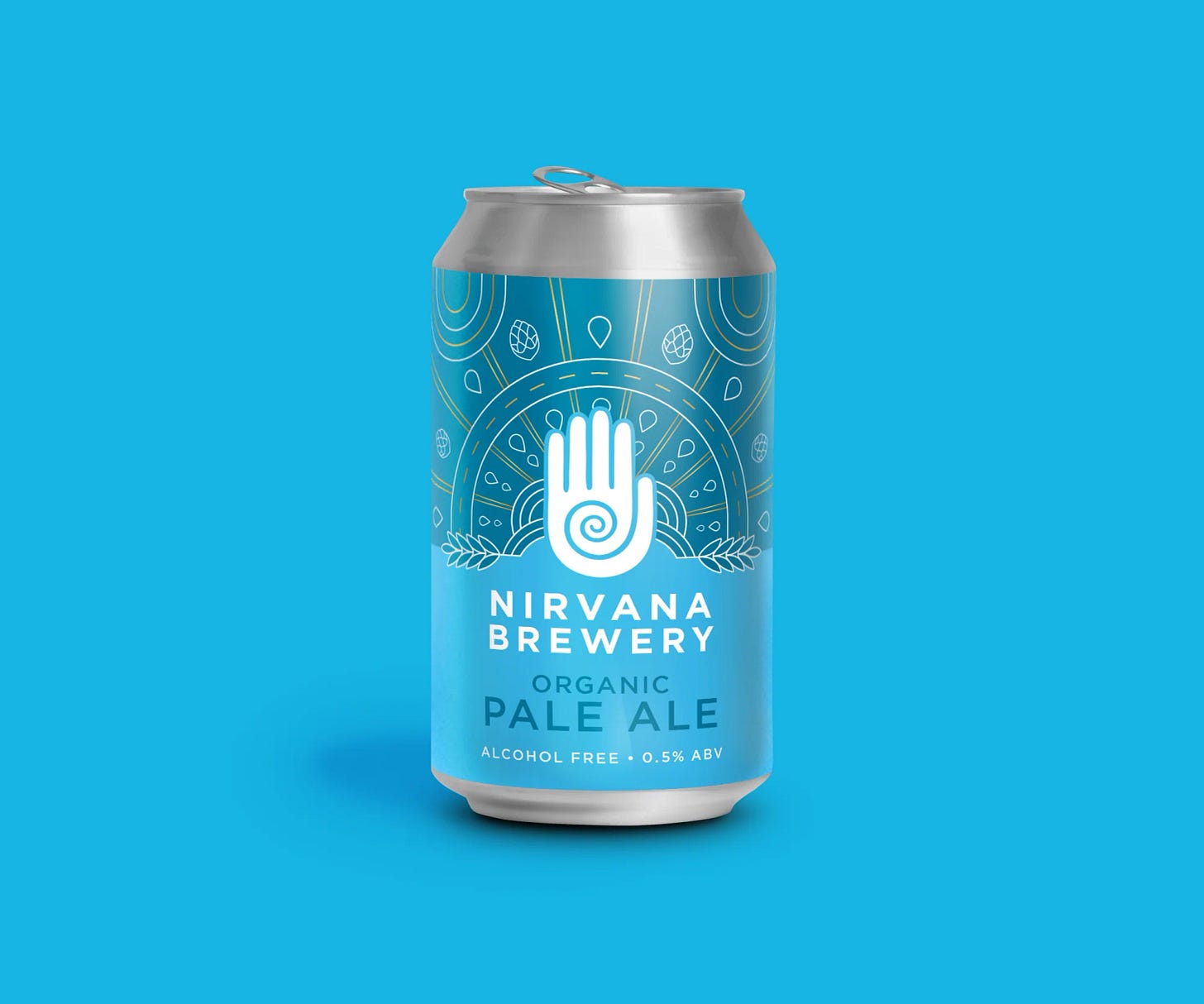Your Inner Peace Is Not For Sale
How companies are cashing in on your quest for consciousness
Hello & welcome to another edition of Beyond Self Improvement!
Last Wednesday, I wrote To Learn Is to Be Human.
We have 16 new subscribers to Beyond Self Improvement since last Wednesday. My goal is 1,000 subscribers by December 2023. If you aren’t already, join 569 lovely people by subscribing right now:
Summary in three sentences
In the quest for genuine peace and understanding, companies have become savvy linguists, employing terms like "mindfulness" and "kindness" to peddle everything from luxury cars to the latest smartphones. Once spiritual practices for equanimity, these words now serve as marketing hooks. Makes you wonder if the true meanings behind these words are becoming diluted.
Dear Friends,
Many turn to spirituality for peace and guidance in a chaotic and often stressful world. The quest for a higher state of being is as old as humanity.
But there's a strange shift happening in how we talk about spirituality today. Suddenly, words like "mindfulness," "enlightenment," and "authenticity" are everywhere—not just in yoga studios or self-help books, but in marketing campaigns for everything from beer to SUVs.
As spirituality is increasingly commodified, one can't help but ask: Are we losing the true essence of these powerful words?
𑁍
You might have seen this happen with other words before. “Namaste,” “Soul Mate," and even sacred words like "God" and "Love" have suffered from overuse. Authenticity is now part of that club—a buzzword on the brink of meaninglessness. In contrast, sincerity implies more than good intentions to include right action. But even sincerity risks becoming cliché when it's plastered on t-shirts and infused into advertising campaigns.
When corporate giants like Apple tell us their new Focus feature helps us "be present," it's clear that spirituality has entered mainstream marketing. But how authentic is this? Your iPhone may have a Do Not Disturb mode, but does it offer a path to awakening? Unlikely. This commodification dilutes the essence of spiritual terms, reducing them to jargon rather than pointers to waking up.
Even purchasing a product or service is now dressed up in spiritual vocabulary. Gone are the days of the sales funnel. Now, it's a "buyer's journey," a walk on the symbolic path of wisdom that—guess what?—ends with you buying something.
In keeping with the trend, kindness has suddenly become the new mindfulness. We've moved from gyms to yoga, organic food, mindfulness, and kindness. Will compassion be next? Or perhaps sacred?
If marketers have their way, these terms risk losing their ability to convey their original potent meaning. It's almost as if the marketers have started meditating, plotting the next big spiritual trend.
Once, spiritual words were revered and reserved for deeper understanding and realization. Yoga was more than just a fitness routine; it was a path to freedom. Organic food wasn't just a diet choice but a philosophy.
Fast forward to today—now we have psychotropic drugs labeled as a new twist to an old route to spiritual awakening. A recent wedding I attended even had an Ayahuasca bar. I cringed. Terms like self-care are the "in" thing. A quick search on Gwyneth Paltrow’s Goop website reveals the term used 921 times. WeWork’s mission is to “raise the level of human consciousness.” How are office space, productivity, and making money related to higher states of being?
Today, trendy words from the wellness and spiritual spheres have infiltrated mainstream consciousness. Companies are adopting language from spirituality and religion to make their products more appealing. Take Honda’s “Insight” and “Clarity” car models, Nirvana Brewery or Satori Capital, as examples. These names evoke a sense of wisdom or higher consciousness, but ultimately, they are still selling products, not spiritual experiences.
“Spence put a new twist on an old philosophy. To be one with everything, you’ve got to have one of everything. That’s why he also has the new Ford Ranger. So he can seek wisdom on a mountaintop, take off in hot pursuit of enlightenment, and connect with Mother Earth by looking no further into the planet’s coolest four-door compact pickup.” - Advertisement for a Ford Ranger
As a result, we end up thinking we already know everything there is to know about spirituality: “practice gratitude,” “be present,” “live intentionally,” and “just breathe.” Such behavior is another form of greed: acquiring spiritual jargon without the transformation meant to come with it.
𑁍
We're at a juncture where spirituality is understood intellectually but rarely intuitively. We've got countless books, podcasts, and blogs discussing mindfulness and compassion. Everyone's talking about waking up, but few are living it. Even the word “awake,” a term the Buddha used to describe himself, has been co-opted by woke. To be clear, woke is not awake.
The commodification of spiritual terms means many no longer convey their original meaning. We're left with a superficial understanding as if skimming the surface of a vast ocean but never diving in to explore its depths.
But it's not just the corporate world. Even within spiritual communities, there's a troubling trend. Sometimes, people with years of counseling, workshops, and somatic healing are far from healed. They've co-opted the language, clothing, and lifestyle but are still the same troubled human beings they were before.
Take, for example, Gwyneth Paltrow's Goop, mentioned above, a one-stop shop for everything from crystals to spiritual guides. But at its core, it's still consumerism dressed in spiritual garb.
𑁍
By scratching the surface, we miss the chance to liberate our minds and transform our lives. We end up regurgitating popular sayings and clichés without understanding their essence. For instance, “Be here now” or “Just let it go” are much-repeated phrases. But they lose their power to bring about real change when taken as mere slogans.
The next time you see a Pottery Barn ad promising "mindfully made" curtain rods for $39.00, take a moment to think. Is this what spirituality has come down to? It's not that people don't seek peace, fulfillment, and purpose. They do. But the spiritual and material lines blur when these pursuits are wrapped in marketing tactics. The co-opting of our sincere desire for clarity and understanding is, frankly, cynical.
So, where do we go from here?
As spiritual beings navigating a material world, the challenge is to hold onto the true essence of spiritual terms. To be aware of commodification's dangers and seek experiences that offer depth over superficial understanding. To remember that sincerity always trumps an overused authenticity. And, perhaps most importantly, to recognize that the path to true awakening can never be bought—it must be lived.
Your inner peace is not for sale. As a Tibetan teacher once said, be wary of everything that leads away from truth, away from the present moment.
Keep your B.S detector sharp,
Ryan
Whenever you’re ready, I can help you transform chronic stress and worry into ongoing calm and feeling in control in 90 days. Schedule a free, 30-minute discovery call today.







Incredibly true. Being bombarded by marketing disguised as spiritual awakening is the trend among marketers in the post-covid world. But I believe those who know can smell it from a mile away. It still works with the trend-followers though and probably that's their audience. I'm sure no luxury car or coffee brand has truly spiritual folks in their pitch decks.
Hi Ryan, Am I subscribed? Or am I just receiving your newsletter on trial basis? I really like it a lot and would like to subscribe if I’ve not already! Thanks, Susan